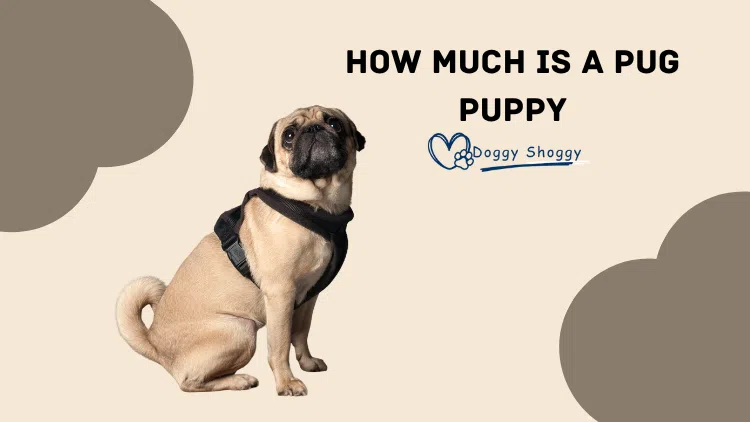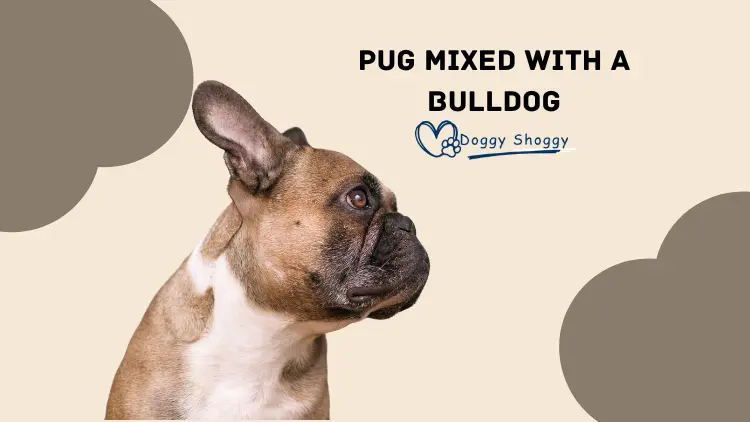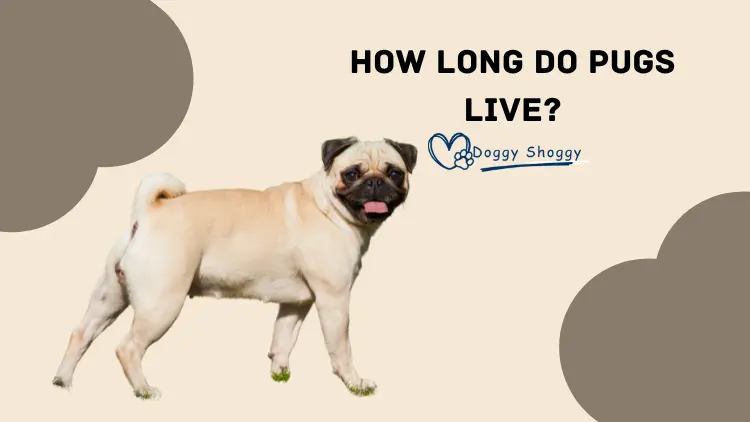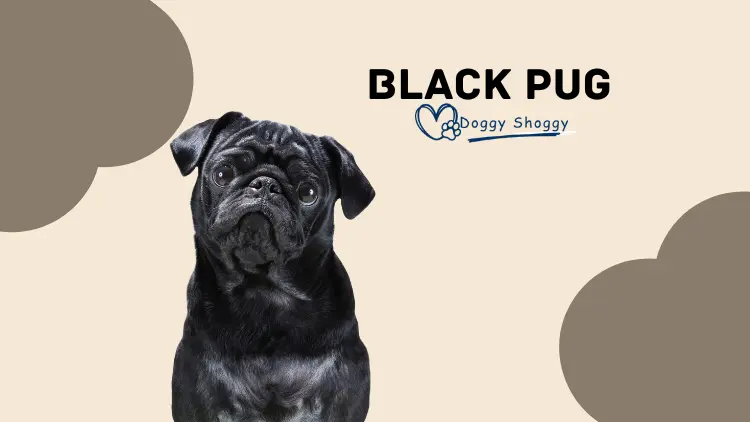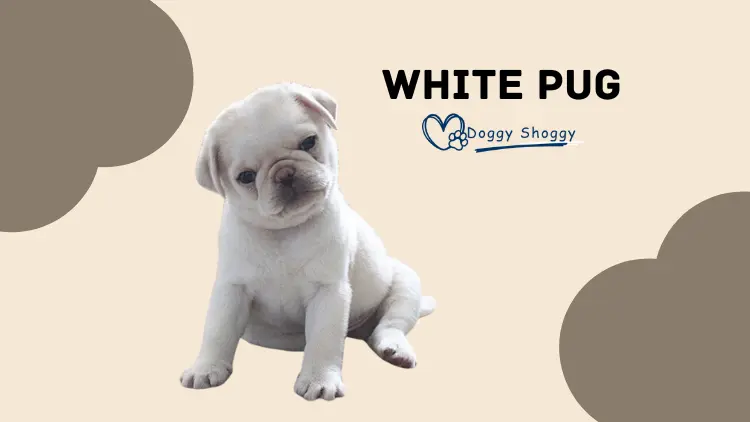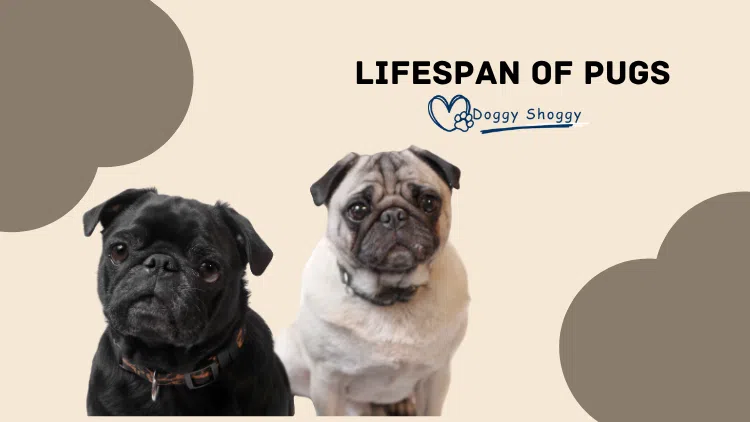Apricot Pug Rare Breed
Many people in the US really love Pugs. They are cute dogs that can fit well in any family, whether you’re already used to having dogs or you’re new to it. When you think about getting a Pug, one of the first things you might think about is what color it will be.
Pugs can be many different colors, like black, silver, and even a special color called apricot. Apricot Pugs are not very common, so they’re pretty special. Because they’re rare, they can be more expensive. Let’s find out more about why people love apricot Pugs so much.
These unique dogs usually cost between $1500 to $2000, but those from high-quality lineages may cost around $9000 on average.
Table of Contents
Apricot Pug Origin and History
These special dogs, often called “fawn” or “apricot fawn” Pugs, have an interesting history that goes back to ancient China. Back in the Han dynasty, which was a really long time ago from about 206 BCE to 200 CE, Chinese Emperors loved these adorable pets. Originally bred to be lap dogs, they were adored for their friendly personalities and loyalty. Their journey from ancient China to becoming cherished pets all over the world is full of stories about friendship and admiration.
Ancient Chinese Beginnings
In ancient China, these special dogs were treasured by the royal court. Emperors and their families adored them, seeing them as both companions and symbols of importance. These dogs were known for their playful personalities and stood out with their unique coat colour among other breeds of the time.
Journey to Europe
The journey of these special dogs to Europe is a fascinating story of adventure and cultural connections. It’s believed that Dutch traders brought them to Europe around the 16th century, where they became really popular among noble people. The unique colour of these dogs caught the eye of European aristocrats, who wanted them as pets and symbols of their high social status.
Popularity in Victorian England
In Victorian England, these special dogs became really popular among rich people. Even Queen Victoria liked them, which made them even fancier. Apricot Pugs became trendy accessories, often going to parties and social events with their owners.
Modern-Day Apricot Pugs
Even today, people all over the world still love Apricot Fawn. They might not live only in fancy palaces anymore, but they’re treasured members of many families. With their long history and adorable personalities, Apricot Pugs have a special place in people’s hearts that lasts for generations.
Apricot Pug Physical Characteristics
These special dogs stand out with their unique appearance, boasting apricot-coloured coats and adorable facial expressions. Despite being small, they have a strong and compact body, and their playful nature adds to their charm.
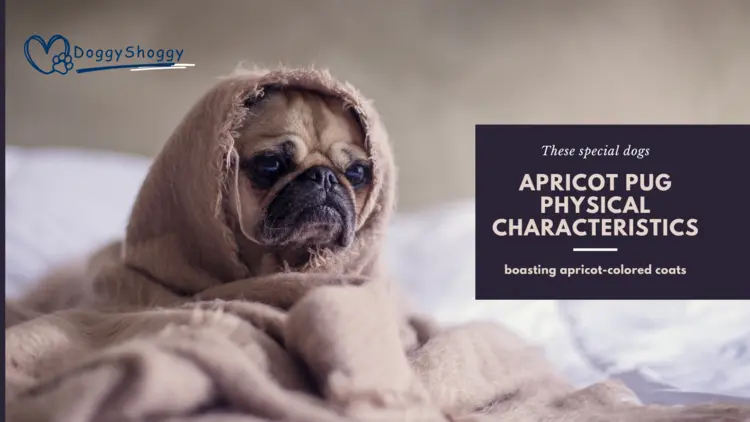
| Characteristic | Description |
|---|---|
| Height | 9.5–14.5 inches |
| Weight | 14–18 pounds |
| Lifespan | 12–15 years |
| Colour | Apricot |
| Suitable for | Both big and small families, apartments |
| Temperament | Friendly, loyal, outgoing |
Coat and Color
The special thing about these dogs is their coat, which comes in different shades of apricot, from light cream to deep gold. Their short, smooth fur is easy to take care of, needing only a little grooming. Even though they have just one coat, Apricot Pugs can handle different kinds of weather pretty well.
Facial Features
One of the cutest things about these dogs is their faces. They have big, round eyes that look really smart and friendly, and they are surrounded by black masks that make their features stand out. Their wrinkly foreheads add to their charm, giving them a curious look that makes everyone fall in love with them.
Body Structure
These dogs are small yet robust, typically standing about 10 to 13 inches tall and weighing between 14 to 18 pounds. Despite their size, they’re quite sturdy and agile. With plenty of energy and a love for play, they make wonderful companions for families and individuals alike.
Overall Appearance
These lovely dogs have special appearances and are very friendly. Their apricot-coloured coats and expressive faces always bring smiles to people’s faces. Whether they’re lounging at home or having fun outside, these dogs spread joy and are wonderful companions wherever they go.
Readers Also Like:
Apricot Fawn Temperament and Behavior
They are renowned for their affectionate and playful nature. These delightful dogs have a knack for bringing joy and laughter to any household with their endearing antics and unwavering loyalty.
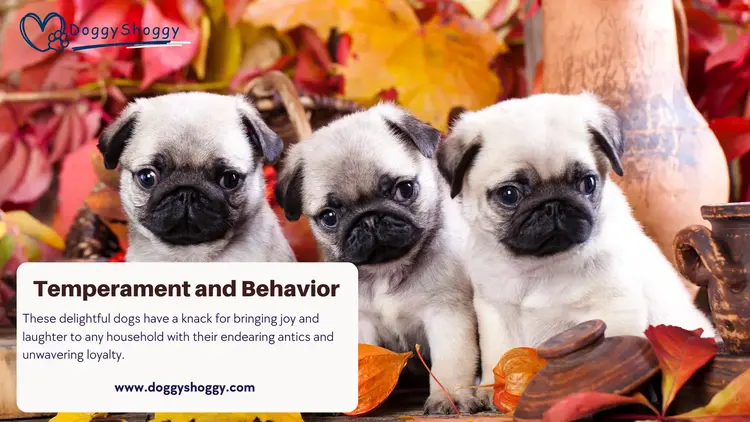
Affectionate Companions
Apricot Pugs love being around people and are super loyal to their owners. They get really close to their families and enjoy cuddling on the sofa or snuggling in bed. Because they’re so affectionate, they’re great therapy dogs, making people feel happy and comforted when they need it.
Playful Spirits
Even though they’re small, these dogs have lots of energy and love to play. They have fun with games and toys that make them think and keep them busy. Whether they’re running around outside chasing a ball or playing tug-of-war inside, they’re always ready for some fun.
Gentle Temperament
These gentle dogs are great for families with kids and other pets. They’re patient and easygoing, making them perfect buddies for families of any size. They’re also really friendly with people they don’t know, and they are always happy to meet new friends with their outgoing and welcoming attitude.
Alert and Watchful
These dogs are loving and also excel at guarding their families. Despite being small, they have a keen sense of awareness and will alert their owners if there’s a problem or someone approaching. Their special bark signals potential dangers, ensuring everyone feels secure and safe.
Apricot Fawn Pug Care and Training
Taking care of these special dogs involves giving them good food, making sure they get plenty of exercise, and using gentle ways to teach them. By looking after their body and their feelings, you can keep your furry friend happy and healthy for many years.
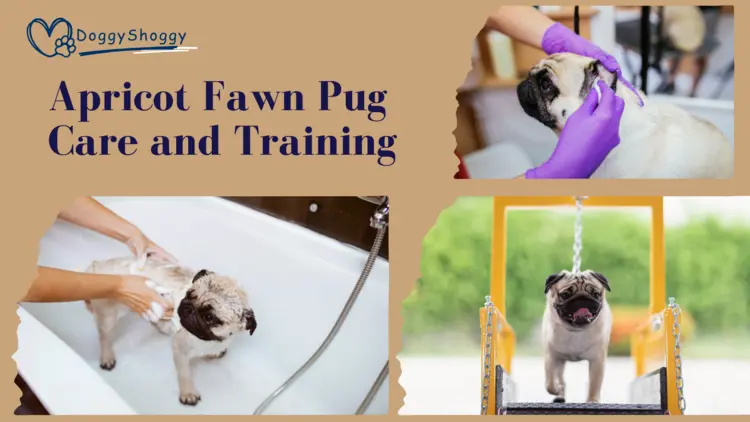
Nutrition
It’s really important to feed your dog the right food to keep them healthy. Choose a good dog food made for small dogs and be careful not to give them too much so they don’t gain too much weight. Also, be cautious about any foods that might upset their stomach, and if you’re unsure about anything, ask your vet for advice.
Exercise
Because they’re small, it’s really important for Pugs to stay active to be healthy and happy. Taking them for walks, playing games, and doing fun activities are all great ways to keep them busy and happy. It’s important for them to exercise both indoors and outdoors so they have lots of energy and behave well.
Grooming
They have short, smooth fur that’s simple to take care of. Brushing them often will help remove loose hair and keep their coat nice. Giving them a bath every now and then will keep them clean and shiny. Also, make sure to cut their nails and clean their ears to prevent infections.
Training
Training your Pug should be fun and happy for both of you. Use nice words, treats, and toys to teach them good things and stop them from doing things you don’t like. Being consistent and patient is critical, and it’s best to start teaching them when they’re young to help them learn good habits from the start.
Apricot Pug Lifespan
The lifespan of these dogs can vary depending on various factors. Generally, they live around 12 to 15 years if they’re treated well, eat right, exercise, and visit the vet. But with really good care and lots of love, some might even live longer.
Factors Affecting Lifespan
The lifespan of these dogs can be affected by their family history, which is called genetics. If their relatives lived long and healthy lives, they might, too. Also, giving them healthy food, making sure they exercise, and taking them to the vet regularly can help them stay healthy as they grow older.
Common Health Issues
Just like other kinds of dogs, Apricots can have health problems that might affect how long they live. These might include trouble breathing, eye problems, skin allergies, and joint issues like hip dysplasia. Going to the vet regularly and taking good care of them can help find and treat these problems early, which might help them live longer and healthier lives.
Quality of Life
It’s really important for your Apricots to live a good life so they stay healthy and happy for a long time. Giving them lots of love and exciting things to do, like playing and learning new tricks, can keep them feeling good as they get older. It’s also important to pay attention to any changes they might have as they age and adjust how you take care of them accordingly.
Overall, Apricots usually live for about 12 to 15 years, but by taking care of them well and looking after their health, they can have a really great and long life as part of your family.
Bottom Line
Apricot Pugs are delightful companions known for their affectionate nature, playful demeanor, and distinctive appearance. With their rich history, charming personalities, and enduring popularity, as well as their lovable nature, Apricots bring joy and companionship wherever they go, whether at home or exploring the outdoors.
Useful and Unique FAQs with Answers
Are Apricot Fawn good with children?
Yes, These dogs are usually great with kids and make awesome family pets. They’re loving and kind, and they love hanging out with people.
Do Pugs require a lot of exercise?
While dogs of this type have a playful spirit, they don’t need lots of exercise. Going for walks and playing each day is usually enough to keep them feeling good.
Are Apricot Pugs prone to health issues?
Like other kinds of dogs, these little buddies might have health problems, such as trouble breathing, eye issues, or skin allergies.
Do Apricot Pugs shed a lot?
They have short, smooth fur that sheds a bit. Brushing them often can help reduce shedding and keep their coats nice and shiny.
Are Apricots easy to train?
These dogs are really smart and like to learn new things. If you use kind words and rewards to teach them, they catch on fast

